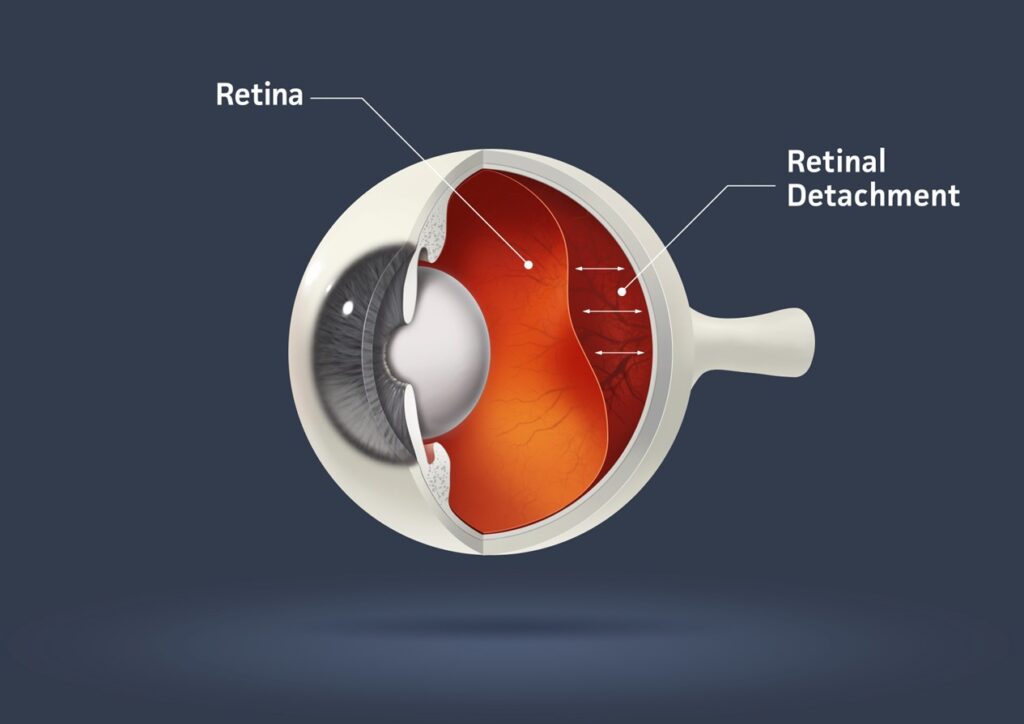If you are a patient seeking information about retinal detachment, here are some essential things to know:
Definition and Causes:
Retinal detachment occurs when the retina, the light-sensitive layer at the back of the eye, becomes separated from its supporting tissues. Causes of retinal detachment include aging, eye injuries, underlying eye conditions, or previous eye surgeries.
Symptoms of retinal detachment:
Recognizing the symptoms of retinal detachment is crucial for early detection and prompt treatment. Common signs include the sudden appearance of floaters (tiny specks or cobweb-like shapes in your vision), flashes of light, a curtain-like shadow or veil descending over your visual field and blurred or distorted vision.
Urgency of Treatment:
Retinal detachment is a medical emergency, and timely treatment is essential to prevent permanent vision loss. If you experience any symptoms, seek immediate medical attention from an ophthalmologist or visit an emergency department.
Diagnostic Procedures:
To diagnose retinal detachment, an eye care professional will conduct a comprehensive examination, which may involve dilating your pupils to examine the retina more closely. They may also use imaging tests such as ultrasound or optical coherence tomography (OCT) to evaluate the extent and location of the detachment.
Treatment Options:
The choice of treatment for retinal detachment depends on several factors, including the severity and location of the detachment. Common treatment methods include pneumatic retinopexy (injecting a gas bubble into the eye), scleral buckling (placing a flexible band around the eye), vitrectomy (removal of the vitreous gel), and laser or cryotherapy to seal retinal tears.
Recovery and Follow-up:
Following treatment, the recovery process varies from person to person. It is crucial to follow your ophthalmologist’s postoperative instructions carefully, including the use of prescribed eye drops and medications. Attend all scheduled follow-up visits to monitor your progress and ensure proper healing.
Consult a qualified healthcare professional to receive personalized advice and guidance based on your condition.


